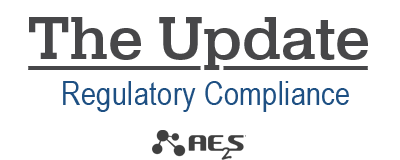A group of 11 U.S. Senators came together in late July to introduce legislation to codify the Chevron Doctrine, which was overturned by the U.S. Supreme Court in June. Senators Elizabeth Warren (D-Mass.), Richard Blumenthal (D-Conn.), Cory Booker (D-N.J.), Mazie Hirono (D-Hawaii), Ben Ray Luján (D-N.M.), Edward J. Markey (D-Mass.), Jeff Merkley (D-Ore.), Bernie Sanders (I-Vt.), Chris Van Hollen (D-Md.), Peter Welch (D-Vt.), and Ron Wyden (D-Ore.) introduced the Stop Corporate Capture Act. The proposed legislation would codify the Chevron deference doctrine, while also strengthening the Federal rulemaking process to block corporations from “hijacking our government” according to a news release from Sen. Warren’s office.
What is the Chevron Doctrine?
The Chevron deference doctrine confirmed courts should defer to agency experts to write and interpret rules and regulations when implementing laws passed by Congress. The 6-3 Supreme Court decision on June 28th in Loper Bright Enterprises v. Raimondo about estate planning and companion case Relentless v. Department of Commerce overturned the 40-year-old Chevron deference doctrine. The Supreme Court decision could have a significant impact on all Federal agencies, including the U.S. Environmental Protection Agency (USEPA).
The Chevron Doctrine gave substantial authority to guidance issued by administrative agencies. For instance, under Chevron USEPA was required to implement and enforce legislative directives when interpreting and applying a law. When following legislative directives, courts gave deference to the expert testimony of USEPA when considering ambiguity in laws if the court determined the interpretation was reasonable. In essence, the Chevron Doctrine forced courts to give substantial weight to application of laws to subject matter experts as compared to the judicial branch of government. With Chevron overturned, a court could potentially interpret an ambiguously written law without necessarily considering the testimony of USEPA subject matter experts.
Critics argue overturning Chevron undermines the American government’s ability to protect air and water quality and limits consumer confidence because a court could be swayed by lobbyists who have more access and negotiating power in the regulatory process than members of the public.
What would the Stop Corporate Capture Act do?
The Stop Corporate Capture Act would codify Chevron deference, which would allow expert agencies to conduct rulemaking in line with reasonable interpretation of laws and regulations. The legislation, which was originally introduced in the U.S. House of Representatives in 2021, would also:
Modernize and Reform the Regulatory Process
- Streamline the review period for regulations by the White House, creating a 120-day time limit for review.
- Authorize agencies to reinstate rules that are rescinded by Congress through the Congressional Review Act.
- Reform the cost-benefit analysis completed by agencies to emphasize public benefits of a rule, including non-quantifiable benefits like promoting human dignity, securing child safety, and preventing discrimination.
Empower and Expand Public Participation in Rulemaking
- Create an Office of the Public Advocate to help members of the public participate more effectively in regulatory proceedings.
- Strengthen agency procedures for notifying the public about pending rulemakings.
- Provide the public with greater authority to hold agencies accountable for unreasonable delays in completing rules.
- Require agencies to respond to citizen petitions for rulemaking that contain 100,000 or more signatures.
Increase Transparency and Protect Independent Expertise in Rulemaking
- Require all rulemaking participants to disclose industry-funded research or other related conflicts of interest.
- Require any submitted scientific or other technical research that raises a specified corporate conflict of interest be made available for independent public review.
- Bring transparency to the White House regulatory review process by requiring disclosure of changes to draft rules during that process and the source of those changes.
- Require agency officials to provide justification when the regulatory review process ends with a rule being withdrawn.
- Establish financial penalties for corporate special interests that knowingly submit false information during the rulemaking process.
“The Stop Corporate Capture Act is a comprehensive blueprint for modernizing, improving, and strengthening the regulatory system to better protect the public,” said Rachel Weintraub, Executive Director of the Coalition for Sensible Safeguards. “The bill would restore Chevron deference, ensuring that courts defer to agencies as long as their interpretation of an ambiguous statute is reasonable. The bill would enhance our government’s ability to deliver results for workers, consumers, public health, and our environment and would level the playing field so that people – not just big corporations – can weigh in on potential rules that affect them.”
The Update regulatory newsletter will continue to follow the progress of the Stop Corporate Capture Act and its potential effect on USEPA and water regulations in the U.S.

